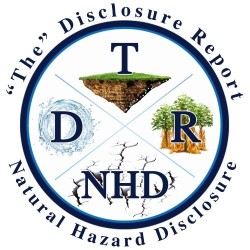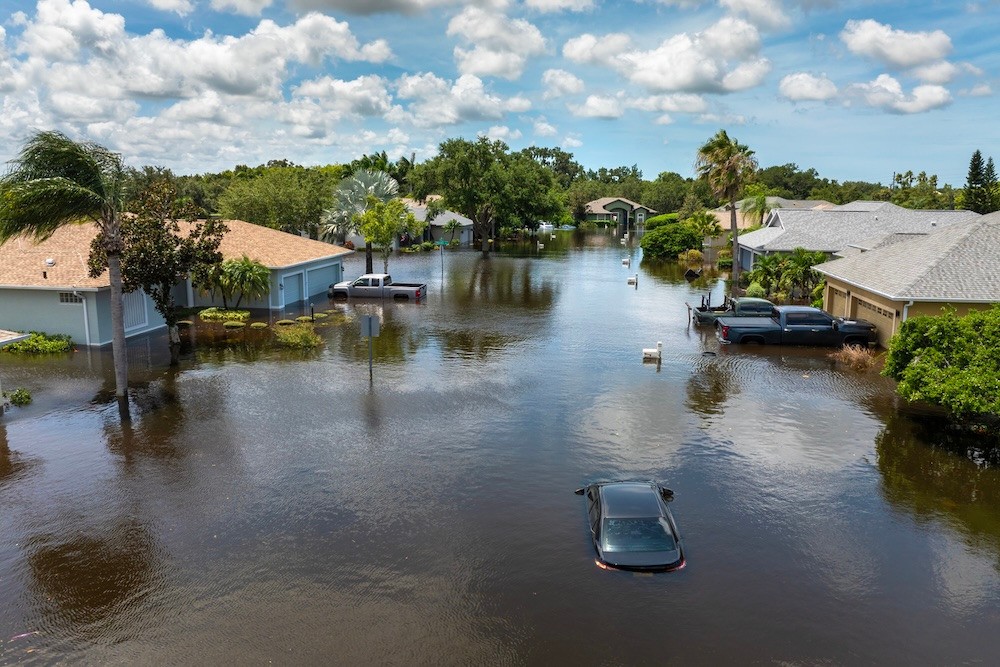When purchasing a property, one of the critical factors that buyers need to consider is whether the home is located in a flood zone. Flood risk can significantly impact a property’s value, insurance requirements, and overall safety. As a real estate professional, your ability to clearly and confidently discuss flood zones with your clients is essential. By using Natural Hazard Disclosure (NHD) reports, you can provide clients with detailed insights about FEMA flood zones and how these hazards affect their investment. Here’s how to approach these conversations.
Understanding FEMA Flood Zones and Their Implications for Homebuyers
FEMA flood zones are areas designated by the Federal Emergency Management Agency (FEMA) based on the likelihood of flooding in a given area. These designations are essential for determining flood insurance requirements and preparing homeowners for potential risks.
What Are FEMA Flood Zones?
FEMA flood zones are categorized into different risk levels:
- High-Risk Areas: These are labeled as Special Flood Hazard Areas (SFHAs) and include zones beginning with "A" or "V." Homes in these zones have a 1% annual chance of flooding (commonly referred to as a 100-year flood).
- Moderate-to-Low Risk Areas: Zones labeled with "B," "C," or "X" are at lower risk but are not entirely free from the potential for flooding.
- Undetermined Risk Areas: Zones labeled with "D" indicate areas where flood risk has not been assessed, requiring further investigation.
Explaining these zones to your clients is crucial because properties in high-risk flood zones may require mandatory flood insurance as part of the mortgage approval process.
How Do Flood Zones Impact Homebuyers?
Being in a flood zone affects a property in several ways:
- Mandatory Flood Insurance: Homes in high-risk areas typically require buyers to purchase flood insurance, which adds to the overall cost of homeownership.
- Increased Risk Awareness: Buyers need to understand that living in a flood-prone area requires extra preparation, such as having an evacuation plan and safeguarding valuables.
- Potential Property Value Concerns: Flood risks can influence property values, as buyers may hesitate to purchase homes in high-risk zones.
By using the flood zone information provided in an NHD report, you can help clients understand these implications upfront, allowing them to make informed decisions.
Highlighting the Importance of Flood Insurance and Preparation
Flood insurance is a vital component of protecting a home located in a flood zone. Explaining its necessity and benefits to clients can help them see the value in proactive preparation.
Why Is Flood Insurance Necessary?
Flood damage is typically not covered by standard homeowners' insurance policies. For homes in FEMA-designated high-risk flood zones, flood insurance is often required to secure a mortgage. Even for homes in lower-risk zones, purchasing flood insurance can provide peace of mind, as floods can happen anywhere due to unexpected weather events or infrastructure failures.
- Cost Considerations: While flood insurance premiums can be an added expense, the financial protection they provide in the event of flooding is invaluable.
- Coverage Options: Educate clients on the difference between National Flood Insurance Program (NFIP) policies and private flood insurance options, which may offer broader coverage or competitive rates.
How to Prepare Homes in Flood Zones
Preparation is just as important as insurance. Encourage clients to take these steps:
- Elevate Valuable Items: Storing critical documents, electronics, and sentimental items in higher locations within the home can reduce potential loss.
- Invest in Flood-Resistant Features: Suggest installing flood vents, elevating HVAC systems, or using water-resistant building materials for areas prone to flooding.
- Create an Emergency Plan: Having a clear evacuation plan and an emergency kit ready can make a significant difference during a flood event.
These proactive measures demonstrate to clients that living in a flood zone doesn’t have to mean constant worry—it’s about being prepared and informed.
How Flood Zones Affect Property Value and Insurance Rates
Understanding how flood risks impact property values and insurance rates is a critical part of guiding clients through the real estate process. Here’s what you should know:
Property Value Implications
Flood risk can influence how buyers perceive a property’s value. Homes in high-risk zones may sell for less due to perceived risks or additional costs like insurance. However, homes that have been fortified with flood-prevention measures may retain or even increase their value, as buyers see the effort taken to mitigate risks.
- Disclosure Requirements: Ensuring that flood risks are fully disclosed helps set appropriate buyer expectations and avoids legal issues down the road.
- Rebuilding Confidence: Emphasize how proper insurance and flood preparation can offset concerns, making the property a viable option for buyers despite the risks.
Insurance Rates for Flood-Prone Properties
Flood insurance premiums depend on several factors, including:
- Zone Designation: High-risk zones have higher premiums due to the increased likelihood of flooding.
- Home Elevation: Homes built above the Base Flood Elevation (BFE) for their zone may qualify for reduced premiums.
- Past Claims: Properties with a history of flood-related claims may face higher insurance costs.
By explaining these factors, you can help clients understand what to expect and encourage them to research options that fit their needs and budgets.
How TDR NHD Simplifies Flood Zone Discussions
At TDR NHD, we recognize that discussing flood zones can feel daunting for Realtors and homebuyers alike. That’s why we take the technical data in NHD reports and transform it into clear, concise summaries. Here’s how we make the process easier:
- Simplified Explanations: Our NHD reports break down flood zone designations and their implications in plain language, ensuring your clients understand the risks without being overwhelmed by technical jargon.
- Customized Support: Whether you need clarification on FEMA flood areas or assistance explaining the report to a client, our team is here to help.
- Proactive Insights: We go beyond the basics to provide actionable recommendations for clients, such as flood insurance options and preparation tips.
With TDR NHD, Realtors can confidently guide clients through the complexities of flood zone disclosures, fostering trust and informed decision-making.
Ready to Simplify Flood Zone Discussions?
Helping clients understand flood risks is a critical part of the real estate process. With TDR NHD’s simplified reports and expert support, you can turn complex flood zone information into actionable insights for your clients. Contact us today to learn how our services can help you navigate flood zone disclosures with confidence.
This article provides clear guidance for Realtors on discussing flood zones with clients and highlights the value of TDR NHD’s services in simplifying complex topics. Let me know if you'd like further adjustments!

